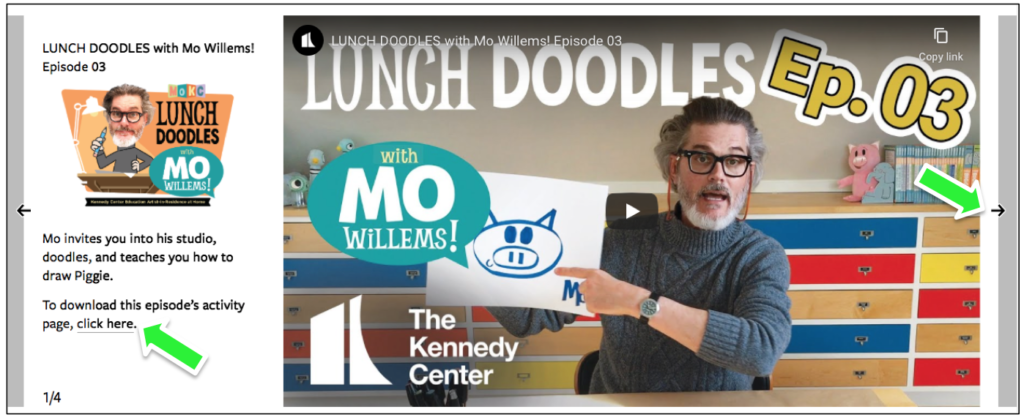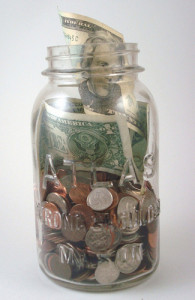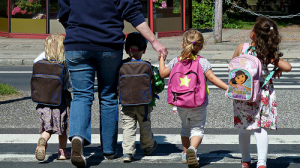Reading, playing, and doing art projects are always great ways to entertain children and keep them physically active and learning. It’s a good idea to limit screen time. But, in this time of social distancing, technology can play an important role in allowing kids to see and connect with the world outside of their homes. Many online resources are popping up to create those opportunities.
Here are five to get you started:
-
- Cincinnati Zoo Home Safari (daily at 3pm EST). Resources available here.
- Visit Disneyland & Disney World with these online virtual rides.
- Mo Willems (author of the Pigeon kids books) Lunch Doodles (weekdays at 1pm EST). Each doodle has a printable activity page. The arrow on the right side takes you to the previous day’s doodle video/activity.

- Here is a list of 33 National Parks you can tour online. Maybe start with a virtual tour of Yellowstone National Park.
- Storytime from Space features astronauts reading stories from space.
And if kids have questions about the coronavirus, Live Science has created an ultimate kids’ guide to the new coronavirus that has lots of information and is appropriate for school-aged kids.

 Host parents often ask for suggestions on how best to handle common expenses that occur as au pairs are caring for the children.
Host parents often ask for suggestions on how best to handle common expenses that occur as au pairs are caring for the children.



 During work hours, the following would not be considered acceptable:
During work hours, the following would not be considered acceptable: